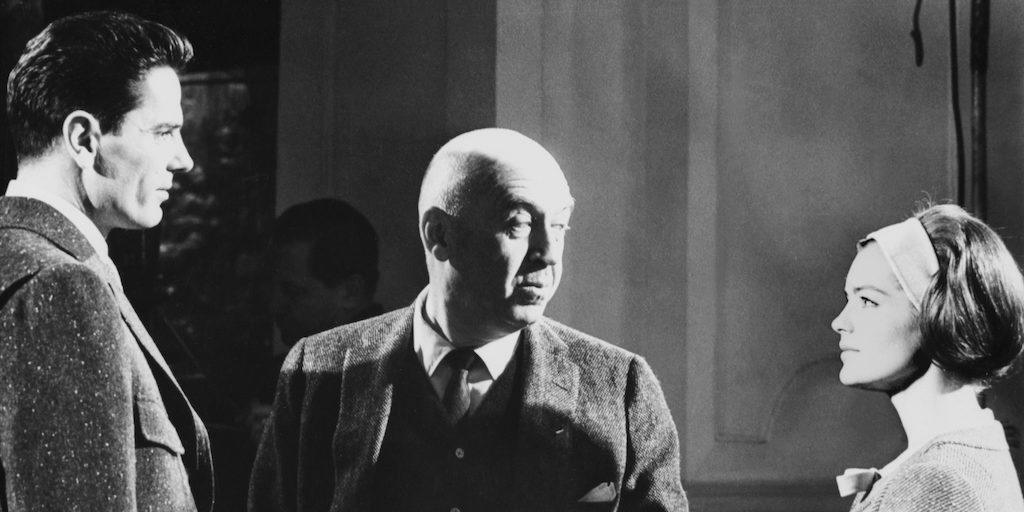WHEN WE WOKE UP, JOAQUIN PHOENIX WAS STILL THERE
1.
Without much beating around the bush, this is not a film. It is a series of vignettes that makes the most vacuous issue of a children’s publication look better by comparison.
It is not possible to even dare the use of the word cinema, let alone the concept of cinema, when applied to this string of mechanical leftovers clumsily covered by the frosting of great spectacle. A gambit this type of cultural guts can no longer employ, since audiovisual technique has extended so much and became so inflationary, that a pre-teen, without being endowed with imagination and even less with elementary culture, has within the reach of his unleashed fingers.
To talk about Mr. Scott as a director would be, and always was, a contradiction that is an assault not only against any intellectual capacity, but also on the merely grammatical. He is a hoarder, a vulgar gatherer of clichés, an antiquarian dealing in the remains of a demolition that does nothing more that mechanically reproduce ad nauseam a whole series of fallacious stereotypes and assorted poisons, things for which Mr. Scott’s country of origin is more than prolific.
2.
It was a repeatedly pointed-out British editorial obsession to tirelessly produce biographies of two French historical figures, Joan of Arc and Bonaparte; the latter with a dual Italian citizenship… Therefore, a double loss of sleep for the British.
For everything else, this stayed as a slogan that back then and long ago barely had the merit of pointing out a fly on the wall. The point is that now the flies have covered the entire wall. That of historical understanding, which includes controversy, dialectical debate and realism. And of course has also covered that mobile wall that was once called “cinema”.
The incestuous wedding between Scott and England can only produce children with severe defects. But if these are decorated with elemental tricks, photographed not just by an artificial intelligence but an artificial ignorance, we are finding ourselves in the middle of a mess. A nihilist chaos.
3.
Naturally, we will not be the ones ––even less after half a century of theoretical work on cinema and its concept–– who will employ the always wrongful concept of “verisimilitude” that we have fought so much against, and believe to have proven its fallacy with meditated and reasoned arguments; not to mention scientific.
Every narrator, of film or literature, a playwright, painter or poet can take all the licenses that apply to the case. Poetic licenses, to be precise. But if that license becomes licentious, that is “a promiscuous blend of everything”, it becomes a qualunquism.
4.
In the moments world history is going through, where a whole series of certainties or political pacts end or seem to end, as well as the organizations that support them, any expense, not only in the monetary sense ––to which everything is reduced to–– but “expense” in the sense of an anthropological exchange of goods, is a step that must be given consideration.
The past as emotional subjectivity can only give rise to the lyricism or the existential trance of the “memento mori”. But the search, or the attempt in searching for objectivity, is an attempt in understanding the emotional-spiritual conditions, as well as the material, that lead to the present and are a motive of all that is called History. That we still write it with a capital H can seem both a humble attempt at hope ––that perhaps the not yet extinct reason cannot understand––, as well as a grotesque layer of make-up to cover a deformed face.
5.
Every piece of expression, or that presents itself as such, meaning by this the most organic objectivation possible of human evolution, must keep caution, or rather an integrity in justifying any re-presentation, which is to present something again. To think is to represent; be it private, emotional, subjective, particular, psychic, etc. or the general, universal, which is a more than millenary attempt in maintaining the original verticality of the passage of the hominids to the “homo sapiens”.
This verticality, both subtle and methodically studied, placed in concept since Vico to Teilhard de Chardin fixed and marked ––to put it ethologically–– our function: the entity which is man, the human, but which from that verticality asks about the being. Once again: “Why there is being and not nothing.”
6.
Nihilism, that nothing which upon being unable to justify itself, even grammatically without falling into the absurd ––“I believe in nothing”, “There is only nothing”, etc.––, must be covered with the curtain of “causism”, curiosities, “the interesting”, as Kierkegaard would put it. And these “curiosities” must be manufactured accordingly to an even more urgent celerity. But that urgency is only inertia. The central nervous system that seeks to reproduce itself “without any moral delusion”, must manufacture at an unusual speed not only gadgets, but also disputes where there was no problem or they were already solved to begin with.
Naturally the resolution is always a problematic one, meaning that it loses something with a bigger investment of energy. Given that also thermodynamics, as any immanent science or that believes to be such, keeps, preserves a remainder, a plus ––or minus, it does not matter–– of otherness. Of another thing.
Science, even politics, is a metaphysics that is ignored. Therefore, the concept or flatus vocis of progress is problematic. Tragic.
We quoted days ago the dictum by Lévi-Strauss… “In what we call progress there is a ninety percent of efforts to remedy inconveniences linked to the advantages procured by the other ten percent”
7.
If one does not believe or does not have a transcendental notion, a “vertical reason”, being in the world must be manifested and justified in an immanent manner. By this we mean in the world of western economic privilege. Given that we are not going to ask ––as it attempts to delude in a perverse manner–– the hungry and sick crowds of not only colonial countries, but also colonizing ones who now receive, with different degrees or grimaces of ambiguous acceptance, crowds in desperate conditions to resort to such a luxury. And this according to the political direction the reception desk has during such period. A reception desk that receives Washington’s precise instructions, and that the vacuous “European Union” accepts passively and slavishly.
8.
England has had a coherent policy. This does not mean fair, which is another story. If we look at it politically, it has been efficient and besides, knew how, once its energy was depleted, to transport it transatlantically. It was very skilled in making the transfer from the London offices to the New York offices. That some ––not all–– of its inhabitants continue to call it “independence” is up to them. That we continue to believe it is up to us and it must be kept very present.
Let us say that the “motherland”, or the originary industrial matrix, lost any main command and decision, and kept only just a pomp and circumstance as a façade that has not being believed in for years, not even those in charge of the props.
Skilled merchants in the production of a variety of products; first to be consumed by the domestic market and, later on, for their exportation, fabricated a novelty one, called “rebellion”, “transgression”: “the alternative”, as they call it.
9.
But the “alter” in this “alternativity” is no “other thing”; it is neither an opposite nor a controversial standpoint to the other and previous, but a product with a diverse appearance and packaging, manufactured by the same factory and its assembly line.
That the Joneses or Smiths believe such a mistake and imagine that with such similes with “technified difference” ––as we called them long ago–– can alleviate not just the rainy days and the humidity, but the memory of a generation or two of proletarian labor, or direct slavery, and which through such devices imagine they stand in the opposite sidewalk, is a problem of the Joneses and Smiths.
That Garcia, Roccatagliata, Da Silva and even Dupont believe it, is our problem. Because here it is about a suicide drive and not just political shortsightedness but absolute political blindness. Now we can say it, POLITICS.
10.
We are not interested, except as an aesthetical philosophy, to scientifically demonstrate––that is by induction and comparison–– the ugliness or vulgarity of such products in permanent exhibition. We are not interested in rejecting them either, or even to detest them, sunk or shielded by a moral superiority on our part. Let us keep permanently present one of the apothegms in the Corleone doctrine: “Never hate your enemies. It affects your judgment.”
11.
I will ––with the implied approval of the reader–– step into a personal anecdote. Years ago, not that many, an economy columnist, although with some fickleness ––unjustified, as we will appreciate–– as a historian, ordinarily repeated the tapping of the almost innate, flawless, always alert, self-critical of England, unlike other countries fallen off the English self-critical paradise.
I simply mentioned to him the recent release of a film from that country, Elizabeth. Not only a bumbling shameless panegyric to the vicious usurper of the Crown of the Stuarts, but also, in parallel and more than repeatedly, presented the Spanish and the Italians, Catholics altogether, as monsters, reducing them to caricatures.
I also reminded him that this was already centennial in them, by several times. The novels on roman culture and its empire; Robert Graves’ programmatic rubbish with his Emperor Augustus as a puppet of the schemes of his wife, Livia; and even the capacity of going back to Eneas himself, that ingrate latin lover who seduced the Carthaginian Dido.
Joan of Arc? A hysteric. The two Medici Queens in France? Both hags and tramps. The indispensable Lucrezia Borgia? Yes, you guessed it, a poisoner. And closer in time and to us: Evita? A slut.
Oh, how wonderful is the English simplicity to go through History with a spotless Victorian virginity!
12.
Obviously when something crafted by them, for instance the submission of women as workers or street walkers, or as a bourgeois wives and mothers tight into a sexual corset (as with Rose in Titanic), is no longer necessary or useful for mere reasons of material production, such family-sexual organization is then rendered outdated and obsolete.
Then they appeal to the second powerhouse and manufacture the “technified differences”. Buffoons that divulge screams and taunts provided of stereophonic and strident clothing; hopheads with guaranteed circulation permits, an shakers of tits and ass to prove that we are in ––to put it in the words of one of its most lucid prophets–– A Brave New World.
13.
But that is not enough. Because if one has at least half a brain when it comes to historical knowledge, we will understand that they leap out without any reservation to add this previously mentioned sexual and moral hypocrisy when it comes to ––although inversely–– women in Latin and Mediterranean countries.
Then, if employing historical, scientific reasons and not of an implied moral superiority… “Hey, but Livia, Joan of Arc, Eleanor of Aquitaine, the two Medici Queens, Lucrezia and ––to not extend ourselves–– Evita, do not seem to have preserved themselves into the puritan Victorian mold of the submitted…”
So? They have no hesitation in responding: “They were all hysterics, hags and whores”.
And it is here that Madams García, Roccatagliata, Da Silva and Dupont who should sharpen their wits and the pencils of historical-political conscience.
14.
Returning to the issue at hand, this is not just bad, awful cinema, it is a vacuous audiovisual exercise, where technique is displayed on an autonomous lifeline gloating about its device, while at a parallel lifeline ––if such space exists–– runs, or rather crawls, the sloppy improvisation; the absolute lack of even the slightest notion of mise-en-scene.
They are loose pieces, thrown around randomly without any coherence and with great hoarding of pedestrian intertitles.
Sorry, there is one coherence: that of being an awful tirade against that ghost of Bonaparte that goes across not only Europe, but the wet dreams of that island that never was a part of it, nor does want to be. Let us leave it floating in that sea, adrift from History.
One can talk now about a tendency. The film ––we will call it such–– made “in the style of the Brexit”. We will add another “example”, the similarly mediocre Dunkirk by the ostentatious Christopher Nolan, here abandoning his pretentions of presenting himself as a “profound innovator” to create another pamphlet of British singularity. In all rigor, it is an apology of their provincial insularity that crudely falsifies what happened there and then.
15.
A film that is allegedly historical ––granted––, cannot contain and go through all the dark corners and take care of all the characters (side, secondary, coral and others) without dilating in running time and mere illustration. Now well, in the choice of such motifs and figures its intention is proclaimed.
Certainly, all biographical-historical films are generally clumsy and failed to begin with. They are miscarried from its very conception.
The tradition ––or rather, the exemplary tradition–– proves us that before anything else one must avoid the resource of directly addressing the character as if he already turned into History… Because he already has a varied, rich and strange one at that, as for his own wicked existence in the diverse interpretations, sometimes lucid, some other times partisan.
Even John Ford composed an undaunted film with Young Lincoln; and with the same character, Griffith ––in his penultimate film–– did not achieve much either. He did know what to do with him when he barely turned him into a bit part in a moment of his magnum opus, The Birth of a Nation.
16.
What makes life different and even opposed to the art of fiction consists in that the character, the stand-out figure in History, the great men or the great women who had power and even glory, can barely be bit parts in the narrative art. Otherwise, they give room to hybrids. Alexander, Caesar, Joan of Arc and even St. Francis of Assisi had endured such ignominies.
With the saints, this is due to them being out of History; with the former, is due because they are already the whole History, and therefore have no story to tell.
17.
In literary art one can take shortcuts and employ useful resources to avoid such cul-de-sacs. Let us take for instance a narrative work related to the figure of Bonaparte, War and Peace.
Please, we are trying to be as didactic as we possibly can and not compare the colossus of Russian literature to this visually constipated illiterate!
But it serves us as an example. If you have to narrate a historical epos, that is belonging to a past, not as a verbal tense or chronological period, but “past” in the sense of existential trance, a knot of sense that drastically modifies from the geographic associations down to the mental ones, it cannot be centered in whom has already been judged. Because it will depend on the judge and jury that rule such condemn or absolution.
But if one seeks and finds, with talent and inventiveness, with genius, to put the real characters in a lateral place and make the lead characters fictional, such as in War and Peace, we have the only operational possibility of such fictions or mise-en-fiction of the historical.
One can also seek for an oblique character, set at the margins ––such as Coppola’s Tucker: The Man and his Dream––, and through this sustain or support establish a vision ––always through a mise-en-scene, which in Tolstoy is mise-en-écriture–– of a historical trance, moment, space-time folding, etc.
In this case, we are exposed ––also if it is a film or novel as a stylistic organization, mise-en-scene, structure, etc.–– to a worldview where the character at the margins is employed to transform that distant obscure point, in the point of departure of an emotional-spiritual stance, as well as a historical and political one.
The Bonaparte in War and Peace by the way is not exactly ours, as tradition and political decision. That ––once again Carl Schmitt–– we have not chosen him, but he was given to us because of our own historical genealogy.
But Tolstoy, in the distance he takes from this character, offers us not a res iudicata, but a ricorso; that is, a plea for protection to reopen the trial.
Frankly, during the reading we do not know much about General Kutúzov ––nor we are interested much in knowing––; but we do know about the compound of words organized by the novelist.
Now well, the narrator does makes us invested, passionate, angry or surprised about Pierre Bezújov or Natasha Rostova. But, and also ––here is the quid––, by the anonymous peasant whom in that moment ––made out of words turned into metaphors and symbols–– has as much importance; equal to Kutúzov or Bonaparte.
If the long excursus lavished by Tolstoy with some self-indulgence about war, universal history, God and a few things more is an extra-literary interference, besides being a mending with variations of ideas by Schopenhauer, is another story; or rather, another problem. In any case, Tolstoy will be repeating such a problem in Anna Karénina, with his dilated reflections on the agrarian reform and another dozen subjects.
18.
In the copious eyesore perpetrated by Scott, Bonaparte is reduced to a cuckolded marionette and an obsessed one at that for practicing with Josephine the risky yet satisfactory position known as “pecorina”; which surely is due to his Italian origins. Naturally that, besides, in such practice he is shown to be very clumsy ––tactile and visually–– to hit the right mark; which ––is fair to assume–– brings along the resulting sterility of the woman previously known as Madame de Beauharnais.
He is also presented as a chronic deaf, whose gesture of covering his ears when the cannons are shot invites us to, on our side, to cover our eyes to not be assaulted by such a marathon of nonsense.
That in his Egyptian campaign seeks to contemplate, smell and almost lick a mummy, seems like it was a lapsus or an involuntary confession on the state of mummification of this stuccoed pastiche.
Phoenix ––hoping this is the case of an infrequent phoenix–– acts like an idiot; makes faces like an idiot; moves like an idiot; talks like an idiot, but ––as Groucho Marx would say–– we should not be fooled: he is an idiot.
(United Kingdom, USA, 2023)
Director: Ridley Scott. Writer: David Scarpa. Cast: Joaquin Phoenix, Vanessa Kirby, Tahar Rahim, Rupert Everett. Producers: Mark Huffam, Ridley Scott, Kevin J. Walsh. Runtime: 158 minutes.













